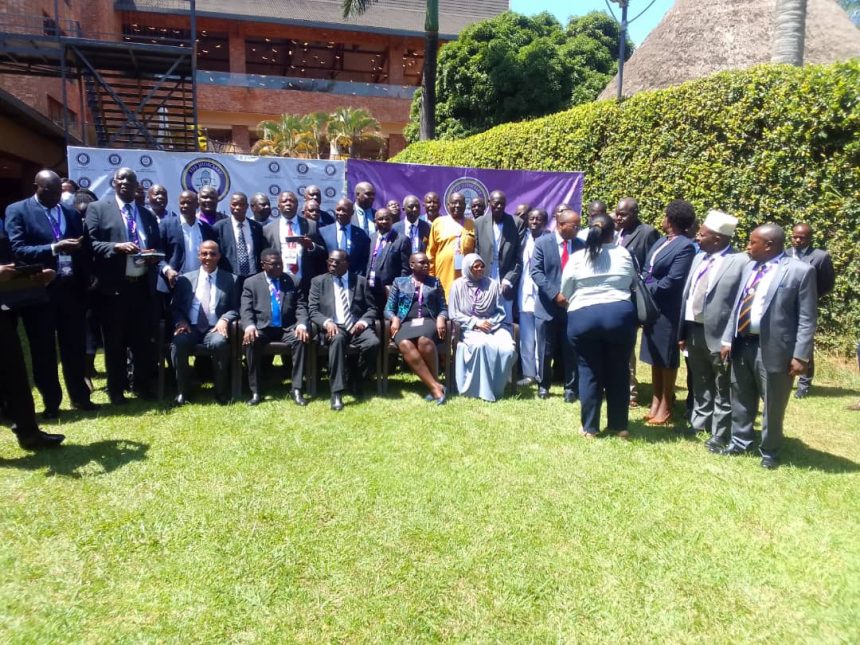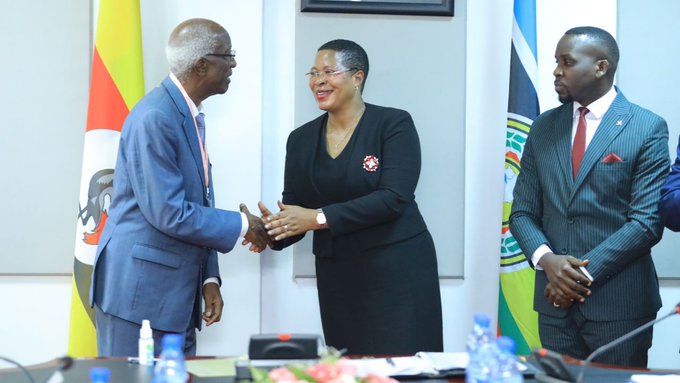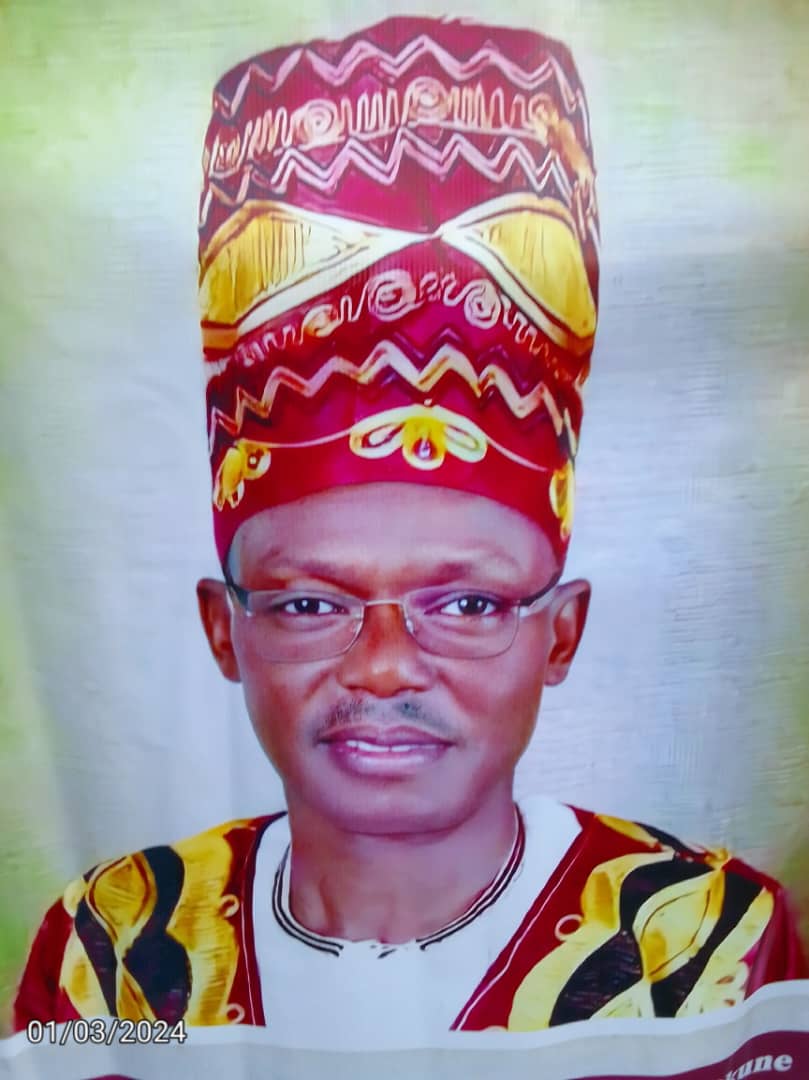The Chief Justice of Uganda, His Lordship Hon. Alfonse Owiny-Dollo, has urged judges, magistrates, and cultural institutions to actively promote the Alternative Justice System (AJS) as a means of fostering harmonious co-existence among communities across the country.
While addressing participants at the National Summit on Alternative Justice Systems held at Munyonyo Resort Hotel, the Chief Justice emphasized that AJS is a valuable and effective mechanism for healing communities. He cited examples such as Makokpoot in the Acholi region as culturally rooted models of dispute resolution that have proven successful.
“Alternative Justice is not only effective—it is also enshrined within our legal framework and constitution. It should be respected and supported,” said Justice Owiny-Dollo.
He warned against undermining cultural institutions and religious organizations that engage in dispute resolution through AJS, stressing that their efforts are legitimate and constitutionally protected. “Nobody should undermine cultural institutions or churches when they use ADR (Alternative Dispute Resolution) to settle disputes,” he added.
Bamasaaba Praised for Peaceful Conflict Resolution
At the same summit, Steven Masiga, spokesperson of the Bamasaaba cultural institution, presented a detailed account of how the Bamasaaba community peacefully resolved internal cultural disputes using constitutional provisions.
He highlighted Article 246(2) of the Constitution and Section 16(1) as legal foundations for resolving cultural conflicts without resorting to the formal court system. He urged the judiciary to recognize the Bamasaaba experience as a model cultural precedent.
“A matter that has been successfully resolved through ADR should not be taken back to court,” Masiga stated.
Justice Owiny-Dollo and Justice Prof. Joel Ngugi of the Kenyan Supreme Court agreed with this position, emphasizing that judges must acknowledge and respect the outcomes of ADR processes. They stressed that ADR is not an inferior process and that it produces binding resolutions that should be upheld by courts.
“Judges must not be ignorant of the value of ADR. They must accept its outcomes,” said Justice Owiny-Dollo.
Prof. Ngugi, who serves on the Council of the Judicial Training Institute (JTI), noted that ADR resolves cases while courts often only decide them—a crucial difference that affects community harmony. He encouraged the judiciary to adopt an “interactive theory” of justice that promotes community-based resolution models.
“Under ADR, justice is not just delivered—it is accepted. There is healing and restoration,” Prof. Ngugi added.
Call to Action for Cultural and Judicial Leaders
Hon. Norbert Mao, Minister of Constitutional Affairs, called on cultural leaders to use ADR within their institutions instead of relying on the court system. He emphasized that judges should not interfere with communities actively resolving their own disputes.
The summit brought together participants from various sectors, including cultural institutions, religious leaders, judges, magistrates, and ministers.
The event was organized by the Judicial Training Institute to equip stakeholders with practical skills in mediation, conciliation, and arbitration.
The session was moderated by Prof. Andrew Khaukha, Justice Emeritus Richard Buteera (former Deputy Chief Justice), and Justice Mike Chibita, among others.
Key Personalities in Attendance:
-
Chief Justice Hon. Alfonse Owiny-Dollo
-
Steven Masiga, Spokesperson of the Bamasaaba Cultural Institution
-
Prof. Andrew Khaukha, Executive Director, Judicial Training Institute
-
Hon. Irene Manghali
-
Hon. Kutoi Moses




















